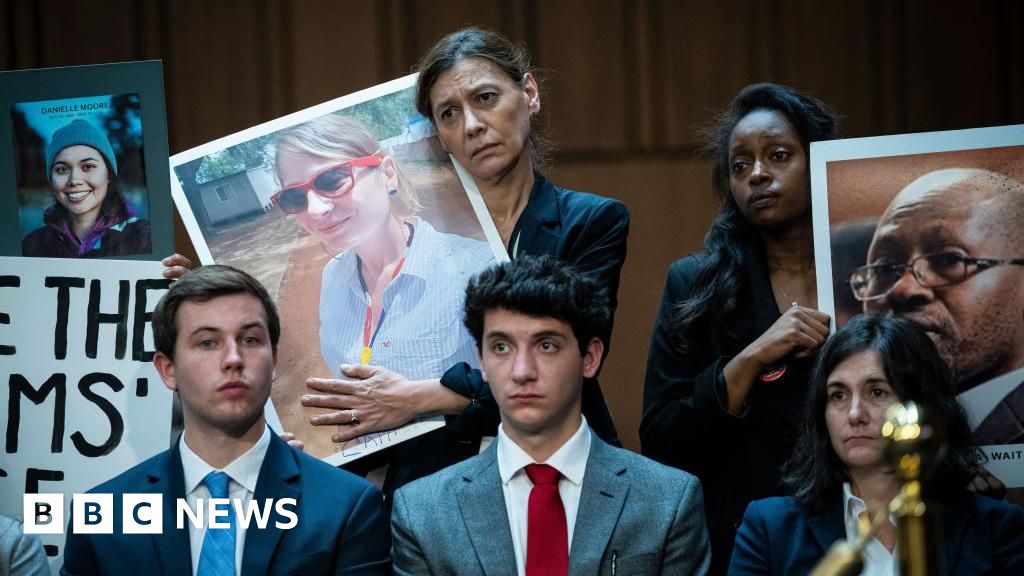ARTICLE AD BOX
 Image source, PA Media
Image source, PA Media
Government minister Nick Gibb has urged the RMT union not to "hold the country to ransom" after it announced new rail strikes from Christmas Eve.
Union members plan to walk out from 6pm on 24 December until 27 December, with the strike set to hit celebrations and travel over the festive weekend.
Mr Gibb said the RMT had rejected a pay offer without even consulting their own membership.
But the RMT said the union was being forced into action by the government.
The fresh walkouts were announced on Monday evening and are in addition to strikes by rail workers that have already been announced and begin next week.
Speaking to BBC Breakfast, Mr Gibb, the schools minister, said: "It's very disappointing that the RMT think that the way to conduct these negotiations is through holding the country to ransom and affecting the Christmas plans (of) hundreds of thousands of people up and down the country.
"We would urge the RMT to call off their strikes."
RMT general secretary Mick Lynch said he regretted the inconvenience that was being caused by the strikes but said: "This inconvenience is being caused by the government who are running the playbook and the strategy for the railway companies and directing what's going on".
The RMT represents staff at Network Rail, who maintain the railways and include signallers and maintenance workers. The union also represents workers at 14 train operating companies.
As well as the strikes on 24-27 December, industrial action across four 48-hour periods will take place on:
- 13-14 December
- 16-17 December
- 3-4 January
- 6-7 January
About 40,000 rail workers across Network Rail and train companies are expected to walk out. There is likely to be disruption in the days around the strikes as well.
The rail sector is not the only industry facing strike action, and walkouts are expected to affect postal deliveries, bus services and teaching in schools this month.
Workers are seeking better working conditions and pay increases to keep up with the soaring cost of living, as prices rise at the fastest rate for 41 years.
The RMT is involved in two sets of talks - one with Network Rail and one with the train operating companies.
Network Rail had said the latest offer was its "best and final". It includes:
- A 5% pay rise this year and 4% next year
- No compulsory redundancies for workers who are not managers until 31 January 2025
- A 75% discount on leisure travel for staff and their family members
On Monday, the RMT said it would put the new offer from Network Rail to its members in an electronic referendum. But it is calling for the offer to be rejected offer, describing it as "not acceptable".
On Sunday, the union rejected the first offer from the Rail Delivery Group (RDG), which represents the 14 train companies.
The RDG's offer included:
- A pay rise for staff of 4% this year, backdated to the beginning of the financial year, followed by another 4% next year
- Changes to working practices including repurposing or closing ticket offices, staff having new "multi-skilled" roles and Sunday working where it is not in place already
- Drivers operating the train doors on more services, although the RDG says guards will still be on board
- No compulsory redundancies until April 2024.
The RMT will continue to hold talks with the RDG on Tuesday.
How will you be affected by the strikes? Share your experiences haveyoursay@bbc.co.uk.
Please include a contact number if you are willing to speak to a BBC journalist. You can also get in touch in the following ways:
If you are reading this page and can't see the form you will need to visit the mobile version of the BBC website to submit your question or comment or you can email us at HaveYourSay@bbc.co.uk. Please include your name, age and location with any submission.

 2 years ago
33
2 years ago
33








 English (US) ·
English (US) ·